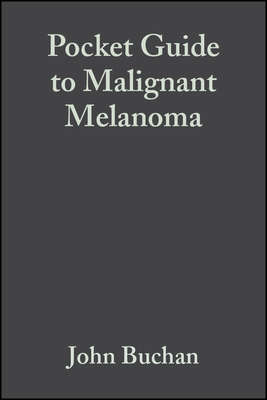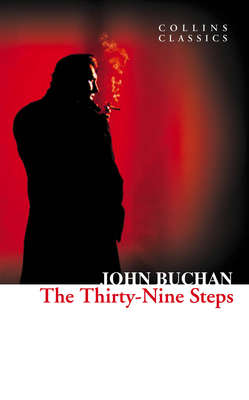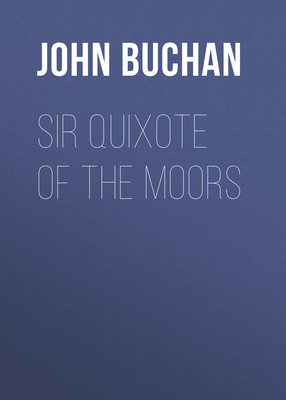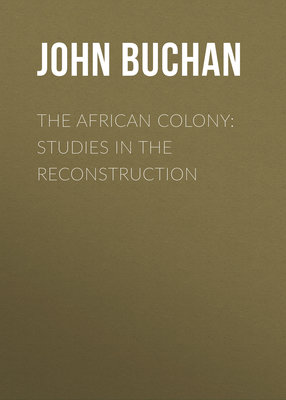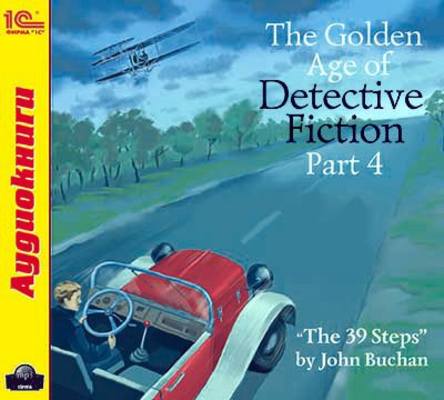Kitabı oku: «John Burnet of Barns: A Romance», sayfa 13
CHAPTER VI
THE CAVE OF THE COR WATER
The place we found ourselves in was a narrow passage, very lofty and very dark, and with countless jags of rough stone on all sides to affront the stranger. Some few paces led us into a wider place, lit by some opening on the hillside, for a gleam as of pale moonlight was all about it. There stood a sentinel, a tall, grave man, dressed in coarse homespun, and brown of the face. Through this again we passed into another straitened place, which in a little opened into a chamber of some magnitude.
When I grew accustomed to the candle-light, I made out that it was a natural cave in the whinstone rocks, maybe thirty feet in height, square in shape, and not less than thirty feet long. The black sides were rough and crusted, and hung in many parts with articles of household gear and warlike arms. But the place was less notable than the people who were sitting there, and greeted us as we entered. In the midst was a table of rough-hewn wood, whereon lay the remnants of a meal. Lit pine-staves cast an eerie glow over all things, and in the light I saw the faces of the company clear.
On a settle of stone covered with a sheep's fleece sat an old man, large of limb and tall, but bent and enfeebled with age. His long hair fell down almost to his shoulders; his features as the light fell upon them were strong, but his eyes were sightless and dull as stone. He had a great stick in his hand which he leaned on, and at our entrance he had risen and stared before him into vacancy, conscious of some new presence, but powerless to tell of it. Near him, along by the table-side, were two men of almost like age, square, well-knit fellows, with the tanned faces of hillmen. I guessed them to be shepherds or folk of that sort who had fled to this common refuge. Beyond these again stood a tall, slim man of a more polished exterior than the rest; his attitude had something of grace in it, and his face and bearing proclaimed him of better birth. Forbye, there were one or two more, gaunt, sallow folk, such as I had learned to know as the extreme religionists. These were busy conversing together with bowed heads and earnest voices, and took no heed of our arrival. To add to all, there were two women, one with a little child, clearly the wives of the shepherds.
Our guide went forward to the man who stood by the wall and whispered something to him. In an instant he came to us, and, bowing to Marjory, bade us welcome. "We are glad to see you here, Master Burnet," said he. "I am rejoiced to see the gentlemen of the land coming forth on the side of the Covenant. It is you and such as you that we need, and we are blithe to give you shelter here as long as you care to bide with us. It is a queer thing that two men of the same house should be engaged in this business on different sides."
Here one of the others spoke up.
"I trust, Master Burnet, ye have brought us good news from the Lawlands. We heard that ye had great converse with the godly there, and we will be glad to hear your account of how the guid cause prospers over the water."
Now I felt myself in a position of much discomfort. The cause of my outlawry had clearly got abroad, and here was I, credited with being a zealous religionist and a great man among the Scots exiles in Holland. Whereas, as I have already said, I cared little for these things, being not of a temper which finds delight in little differences of creed or details of ecclesiastical government, but caring little in what way a man may worship his Maker. Indeed, to this day, while I can see the advantage of having fixed rites and a church established, I see little use in making a pother about any deviation. So I now found myself in an unpleasing predicament. I must avow my utter ignorance of such matters and my worldly motives for thus seeking shelter, and in all likelihood, win the disfavour of these folk, nay, even be not suffered to remain.
"I thank you for your welcome," said I, "but I must hasten to set matters right between us. I am not of your party, though it is my misfortune to have to seek safety among the hills. It is true I have been in the Low Countries, but it was for the purposes of study and seeing the world, and not for the sake of religion. If I must speak the truth, when I abode there I had little care of such things, for they were never in my way. Now that I am returned and find myself a fugitive, I am not a whit more concerned with them. My misfortunes arise from the guile of a kinsman, and not from my faith. So there you have my predicament."
I made the declaration crudely and roughly, for the necessity was urgent upon me of making it very plain at the outset. Another man would have been repelled or angered, but this man had the penetration to see through my mask of callousness that I was not ill-disposed to his cause.
"It is no matter," he said. "Though you were the most rabid malignant, we would yet give you shelter. And, indeed, though you may not be of our way of thinking in all matters, yet I doubt not you are with us on the essentials. Forbye, you are a gentleman of Tweeddale, and it would be queer if you werena right-hearted, Master John Burnet."
Some one of the disputants grumbled, but the others seemed heartily to share in this opinion, and bidding us sit down, they removed our travelling gear, and set food before us. Our appetites were sharp with the long hill journey, and we were not slow in getting to supper. Meanwhile the long man to whom we had first spoken busied himself with serving us, for in that desert place every man was his own servant. Afterwards Marjory went to the women, and soon won their liking, for the heart would be hard indeed which was not moved by her pretty ways and graces.
When I had done I sat down on the settle with the rest, and the fire which burned in a corner of the cave was made up, and soon the place was less dismal but a thousandfold more fantastic. I could scarce keep from thinking that it was all a dream; that my landing, and midnight ride, and Nicol's news, and my perilous predicament were all figments of the brain. I was too tired to have any anxiety, for I would have you remember that I had ridden all the night and most of the day without a wink of sleep, besides having just come off a sea voyage. My eyelids drooped, and I was constantly sinking off into a doze. The whole place tended to drowsiness; the shadows and the light, the low hum of talk, the heavy air, for the outlet for smoke was but narrow. But the man I have spoken of came and sat down beside me and would engage me in talk.
"I do not think you know me, Master Burnet," said he; "but I knew your father well, and our houses used to be well acquaint. I am one o' the Carnwath Lockharts, that ye may hae heard o'. My name is Francis Lockhart o' the Beltyne."
I knew him when he uttered the words, for I had often heard tell of him for a gallant gentleman who had seen service under Gustavus and in many Low Country wars. I complimented myself on his acquaintance, which kindness he proceeded to repay. So we fell to discussing many things – men I had known in Leyden, men I had known in Tweeddale, together with the more momentous question of the future of each of us. I gave him a full account of my recent fortunes, that he might have wherewith to contradict any rumours as to my reasons for taking to the hills. He in turn spoke to me of his life, and his sorrow at the fate of his land. The man spoke in such unfeigned grief, and likewise with such a gentleman-like note of fairness, that I felt myself drawn to him. It was while thus engaged that he spoke a word which brought upon him the condemnation of one of the ethers.
"Oh," said he, "I would that some way might be found to redd up thae weary times and set the king richt on his throne, for I canna but believe that in this matter loyalty and religion go hand in hand; and that were James Stewart but free from his wanchancy advisers there would be less talk of persecuting."
At this one of the others, a dark man from the West, spoke up sharply. "What do I hear, Maister Lockhart? It's no by ony goodwill to James Stewart that we can hope to set things richt in thae dark times. Rather let our mouths be filled with psalms and our hands with the sword-hilt, and let us teach the wanton and the scorner what manner o' men are bred by the Covenant and the Word."
The speech was hateful to me, and yet as I looked in the dark, rugged face of the man I could not keep from liking it. Here, at any rate, was a soul of iron. My heart stirred at his words, and I could have found it in me to cast in my lot even with such as these, and bide the bent with naught but a good sword and faith in God. Howbeit, it was well I made no such decision, for I was never meant for one of them. I ever saw things too clearly, both the evil and the good; and whereas this quality hinders from swift and resolute action, it yet leads more plainly to a happy life.
Then the old man, him whom I have spoken of, beckoned to me with his staff and bade me come and sit by him. He looked so kinglike even in his affliction that I thought on the old blind king Oedipus in the Greek play.
"Ye kenna me, John Burnet, but weel ken I you. Often in the auld days your father and me had gey ploys hunting and fechting roond a' the muirs o' Tweed. He was a guid man, was Gilbert, and I hear he had glimpses o' grace in the hinner end."
"Maybe," said I, being in perplexity, for from the grace that he spoke of, my father had ever been far.
"Ay, and I was sair vexed I saw him so little. For he had to bide at hame for the last years, and I was aye busied wi' other work. Yeddie o' the Linns was never an idle man, and less than ever in thae days."
At the mention of his name a flood of recollection came in upon me. I minded how I had heard of the son of Lord Fairley, a great soldier who had won high renown in the wars abroad: and how he had returned a melancholy man, weighed down with the grave cares of religion, and gone to the wilds of Tweed to a hut just above the Linns of Talla, where he spent his days in prayer and meditation. The name of Yeddie o' the Linns, as he was called among the shepherds and folk of these parts, became an equivalent for high-hearted devotion. Then when the wars began tales of him grew over the countryside. In stature he was all but gigantic, famed over half the towns of France for feats of strength, and no evil living had impaired his might. So at the outbreak of the persecution he had been a terror to the soldiers who harried these parts. The tale ran of the four men whom he slew single-handed at the Linns, hemming them in a nook of rocks, and how often he had succoured fugitives and prisoners, coming like an old lion from the hills and returning no one knew whither. There was also the tale of his blinding by a chance splinter from a bullet-shot, and how he had lived among the caves and hills, dangerous even in his affliction. Had I but known it, this cave was his finding, and half the retreats in Tweeddale and Clydesdale were known to him. But now he was an old man, who had long left his youth, and his strength had all but gone from him. He sat alone in his great darkness, speaking little to the inmates or the chance comers, save when he knew them for gentlemen of birth; for though he might risk his life for the common people, he had no care to associate with them, being of the old Kirkpatricks of that ilk, as proud a house as is to be found in the land.
"You are not of us," he said suddenly. "I heard you say a moment agone that you had no share in the inheritance of Jacob, but still chose to dwell among the tents of sin."
"Nay," I said very gently, for he was very old and of noble presence, "do not speak thus. Surely it is no sin to live at peace in the good earth in honour and uprightness, and let all nice matters of doctrine go by, esteeming it of more importance to be a good man and true than a subtle disquisitioner – thinking, too, that all such things are of little moment and change from age to age, and that to concern one's self much with them is to follow vain trifles. For the root of the whole matter is a simple thing on which all men are agreed, but the appurtenances are many, and to me at least of such small significance that I care for them not at all. I do not mind how a man worship his Maker, if he have but real devoutness. I do not care how a church is governed if the folk in it are in very truth God's people."
"You speak well, my son," said he, "and at one time I should have gone with you. Nor do I set any great value by doctrine. But you are young and the blood is still rich in your veins and the world seems a fair place, with many brave things to be achieved. But I am old and have seen the folly of all things, how love is only a delusion and honour a catchword and loyalty a mockery. And as the things of earth slip away from me, and the glory of my strength departs, I see more clearly the exceeding greatness of the things of God. And as my eyes cease to be set on earth, I see more nearly the light of that better country which is an heavenly. So I love to bide in these dark moors where the pomp of the world comes not, among men of grave conversation, for I have leisure and a fitting place to meditate upon the things to come."
"It may be," said I, "that some day I also be of your way of thinking. At present the world, though the Devil is more loose in it than I love, seems to me so excellent that I would pluck the heart of it before I condemn it. But God grant that I may never lose sight of the beauty of His kingdom."
"Amen to that," said the old man very reverently.
Truly, my thoughts on things were changing. Here was I in the very stronghold of the fanatics, and in the two chief, the old man and Master Lockhart, I found a reasonable mind and lofty purpose. And thus I have ever found it, that the better sort of the Covenanters were the very cream of Scots gentlefolk, and that 'twas only in the canaille that the gloomy passion of fanatics was to be found.
Meantime Nicol, who cared for none of these things, was teaching the child how to play at the cat's garterns.
CHAPTER VII
HOW TWO OF HIS MAJESTY'S SERVANTS MET WITH THEIR DESERTS
The next morn broke fair and cloudless, and ere the sun was up I was awake, for little time must be lost if we sought to win to Smitwood ere the pursuit began. The folk of the cave were early risers, for the need for retiring early to rest made them so; and we broke our fast with a meal of cakes and broiled fish almost before daylight. Then I went out to enjoy the fresh air, for it was safe enough to be abroad at that hour. Nothing vexed the still air on the green hillside save the flapping peewits and the faint morning winds.
Marjory meantime ran out into the sunshine with all the gaiety in the world. She was just like a child let loose from school, for she was ever of a light heart and care sat easily upon her. Now, although we were in the direst peril, she was taking delight in spring, as if we were once again children in Dawyck, catching trout in the deep pools of the wood. She left me to go out from the little glen, which was the entrance to the cave, into the wider dale of the Cor Water, which ran shallow between lone green braes. I heard her singing as she went down among the juniper bushes and flinty rocks, and then it died away behind a little shoulder of hill.
So I was left to my own reflections on the plight in which I found myself. For the first time a sort of wounded pride began to vex me. Formerly I had thought of nothing save how to save my own head and keep my love from my enemy, and cared not, if in the effecting of it, I had to crouch with the fox and be chased by the basest scum of the land. I cared not if I were put out of house and home and outlawed for years, for the adventurous spirit was strong within me. But now all my old pride of race rose in rebellion at the thought that I was become a person without importance, a houseless wanderer, the spoil of my enemies. It made me bitter as gall to think of it, and by whose aid my misfortune had been effected. A sort of hopeless remorse came over me. Should I ever win back the place I had lost? Would the Burnets ever again be great gentlemen of Tweeddale, a power in the countryside, having men at their beck and call? Or would the family be gone forever, would I fall in the wilds, or live only to find my lands gone with my power, and would Marjory never enter Barns as its mistress? I could get no joy out of the morning for the thought, and as I wandered on the hillside I had little care of what became of me.
Now at this time there happened what roused me and set me once more at peace with myself. And though it came near to being a dismal tragedy, it was the draught which nerved me for all my later perils. And this was the manner of it.
Marjory, as she told me herself afterwards, had gone down to the little meadows by the burnside, where she watched the clear brown water and the fish darting in the eddies. She was thus engaged, when she was aware of two horsemen who rode over the top of the glen and down the long hill on the other side. They, were almost opposite before she perceived them, and there was no time tor flight. Like a brave lass she uttered no scream, but stood still that they might not see her. But it was of no avail. Their roving eyes could not miss in that narrow glen so fair a sight, and straightway one called out to the other that there was a girl at the burnside.
Now had the twain been out on an ordinary foray it would have gone hard indeed with us. For they would have turned aside to search out the matter, and in all likelihood the hiding-place would have been discovered. But they had been out on some night errand and were returning in hot haste to their quarters at Abington, where their captain had none too gentle a temper. So they contented themselves with shouting sundry coarse railleries, and one in the plenitude of his greathearted ness fired his carbine at her. Without stopping further they rode on.
The bullet just grazed her arm above the wrist, cutting away a strip of dress. She cried out at the pain, but though frightened almost to death, she was brave enough to bide where she was, for if she had run straight to the cave it would have shown them the hiding-place. As soon as they passed out of view she came painfully up the slope, and I who had heard the shot and rushed straightway to the place whence it came, met her clasping her wounded wrist and with a pitiful white face.
"O Marjory, what ails you?" I cried.
"Nothing, John," she answered; "some soldiers passed me and one fired. It has done me no harm. But let us get to shelter lest they turn back."
At her words I felt my heart rise in a sudden great heat of anger. I had never felt such passion before. It seemed to whelm and gulf my whole being.
"Let me carry you, dear," I said quietly, and lifting her I bore her easily up the ravine to the cave.
When I got her within our shelter there was a very great to-do. The women ran up in grief to see the hurt, and the men at the news of the military wore graver faces. Master Lockhart, who was something of a surgeon, looked at the wound.
"Oh," he says, "this is nothing, a scratch and no more. It will be well as ever to-morrow. But the poor maid has had a fright which has made her weak. I have some choice French brandy which I aye carry with me for the fear of such accidents. Some of that will soon restore her."
So he fetched from some unknown corner the bottle which he spake of, and when her lips had been moistened, Marjory revived and declared her weakness gone. Now my most pressing anxiety was removed, which up till this time had been harassing me sore. For if my lady were to be hurt in this unfriendly place, what hope of safety would there be for either? When I saw that the wound was but trifling, the anger which had been growing in my heart side by side with my care, wholly overmastered me. All my pride of house and name was roused at the deed. To think that the lady who was the dearest to me in the world should be thus maltreated by scurrilous knaves of dragoons stirred me to fury. I well knew that I could get no peace with the thought, and my inclination and good-judgment alike made me take the course I followed.
I called to Nicol, where he sat supping his morning porridge by the fire, and he came to my side very readily.
"Get the two horses," said I quietly, that none of the others might hear of my madness, "one for me and one for yourself." Now the beasts were stabled in the back part of the cave, which was roomy and high, though somewhat damp. The entrance thereto lay by a like rift in the hillside some hundred yards farther up the glen. When I had thus bidden my servant I sauntered out into the open air and waited his coming with some impatience.
I asked him, when he appeared, if he had the pistols, for he had a great trick of going unarmed and trusting to his fleet legs and mother wit rather than the good gifts of God to men, steel and gunpowder. "Ay, laird, I hae them. Are ye gaun to shoot muirfowl?"
"Yes," said I, "I am thinking of shooting a muirfowl for my breakfast."
Nicol laughed quietly to himself. He knew well the errand I was on, or he would not have consented so readily.
I knew that the two dragoons had ridden straight down the Cor Water glen, making for the upper vale of Tweed and thence to the Clyde hills. But this same glen of Cor is a strangely winding one, and if a man leave it and ride straight over the moorland he may save a matter of two miles, and arrive at the Tweed sooner than one who has started before him. The ground is rough, but, to one used to the hills, not so as to keep him from riding it with ease. Also at the foot of the burn there is a narrow nick through which it thrusts itself in a little cascade to join the larger stream; and through this place the road passes, for all the hills on either side are steep and stony, and offer no foothold for a horse. Remembering all these things, a plan grew up in my mind which I hastened to execute.
With Nicol following, I rode aslant the low hills to the right and came to the benty tableland which we had travelled the day before. The sun was now well up in the sky, and the air was so fresh and sweet that it was pure pleasure to breathe it.
After maybe a quarter-hour's stiff riding we descended, and keeping well behind a low spur which hid us from the valley, turned at the end into the glen-mouth, at the confluence of the two waters. Then we rode more freely till we reached the narrows which I have spoke of, and there we halted. All was quiet, nor was there any sound of man or horse.
"Do you bide there," said I to my servant, "while I will wait here. Now I will tell you what I purpose to do. The two miscreants who shot Mistress Marjory are riding together on their way to their quarters. One will have no shot in his carbine; what arms the other has I cannot tell; but at any rate we two with pistols can hold them in check. Do you cover the one on the right when they appear, and above all things see that you do not fire."
So we waited there, sitting motionless in our saddles, on that fair morning when all around us the air was full of crying snipe and twittering hill-linnets. The stream made a cheerful sound, and the little green ferns in the rocks nodded beneath the spray of the water. I found my mind misgiving me again and again for the headstrong prank on which I was entered, as unworthy of one who knew something of better things. But I had little time for self-communings, for we had scarce been there two minutes before we heard the grating of hooves on the hill-gravel, and our two gentlemen came round the corner not twenty yards ahead.
At the sight of us they reined up and stared stock still before them. Then I saw the hands of both reach to their belts, and I rejoiced at the movement, for I knew that the arms of neither were loaded.
"Gentlemen," said I, "it will be at your peril that you move. We have here two loaded pistols. We are not soldiers of His Majesty, so we have some skill in shooting. Let me assure you on my word that your case is a desperate one."
At my words the one still looked with a haughty, swaggering stare, but the jaw of the other dropped and he seemed like a man in excess of terror.
"To-day," I went on, "you shot at a lady not half an hour agone. It is for this that I have come to have speech with you. Let us understand one another, my friends. I am an outlawed man and one not easy to deal with. I am the Laird of Barns – ah, I see you know the name – and let this persuade you to offer no resistance."
One of the twain still stood helpless. The other's hand twitched as if he would draw his sword or reach to his powder-flask, but the steely glitter of our barrels and my angry face deterred him.
"What do you want with us?" he said in a tone of mingled sulkiness and bravado. "Let me tell you, I am one of His Majesty's dragoons, and you'll pay well for any ill you do to me. I care not a fig for you, for all your gentrice. If you would but lay down your pop-guns and stand before me man to man, I would give you all the satisfaction you want."
The fellow was a boor but he spoke like a man, and I liked him for his words. But I replied grimly:
"I will have none of your bragging. Go and try that in your own stye, you who shoot at women. I will give you as long as I may count a hundred, and if before that you have not stripped off every rag you have on and come forward to me here, by God I will shoot you down like the dogs you are."
And with this I began solemnly to count aloud.
At first they were still rebellious, but fear of the death which glinted to them from the barrels of the pistols won the mastery. Slowly and with vast reluctance they began to disrobe themselves of belt and equipments, of coat and jackboots, till they stood before me in the mild spring air as stark as the day they were born. Their faces were heavy with malice and shame.
"Now," said I to Nicol, "dismount and lay on to these fellows with the flat of your sword. Give me your pistol, and if either makes resistance he will know how a bullet tastes. Lay on, and do not spare them."
So Nicol, to whom the matter was a great jest, got down and laid on lustily. They shouted most piteously for mercy, but none they got till the stout arm of my servant was weary.
"And now, gentlemen, you may remount your horses. Nay, without your clothes; you will ride more freely as you are. And give my best respects to your honourable friends, and tell them I wish a speedy meeting."
But as I looked in the face of one, him who had been so terror-stricken at the outset, I saw that which I thought I recognised.
"You, fellow," I cried, "where have I seen you before?"
And as I looked again, I remembered a night the year before on the Alphen road, when I had stood over this very man and questioned him on his name and doings. So he had come to Scotland as one of the foreign troops.
"I know you, Jan Hamman," said I. "The great doctor Johannes Burnetus of Lugdunum has not forgotten you. You were scarcely in an honest trade before, but you are in a vast deal less honest now. I vowed if ever I met you again to make you smart for your sins, and I think I have kept my word, though I had the discourtesy to forget your face at first sight. Good morning, Jan, I hope to see you again ere long. Good morning, gentlemen both."
So the luckless pair rode off homeward, and what reception they met with from their captain and their comrades who shall say?
Meanwhile, when they were gone for some little time, Nicol and I rode back by a round-about path. When I began to reflect, I saw the full rashness of my action. I had burned my boats behind me with a vengeance. There was no choice of courses before me now. The chase would be ten times hotter against me than before, and besides I had given them some clue to my whereabouts. You may well ask if the danger to my love were not equally great, for that by this action they would know at least the airt by which she had fled. I would answer that these men were of Gilbert's own company, and one, at least, of them, when he heard my name, must have had a shrewd guess as to who the lady was. My cousin's love affairs were no secret. If the man had revealed the tale in its entirety, his own action must necessarily have been exposed, and God help him who had insulted one whom Gilbert cared for. He would have flayed the skin from him at the very mention.
To my sober reason to-day the action seems foolhardy in the extreme, and more like a boyish frolic than the work of a man. But all I knew at the time, as I rode back, was that my pride was for the moment soothed, and my heart mightily comforted.





